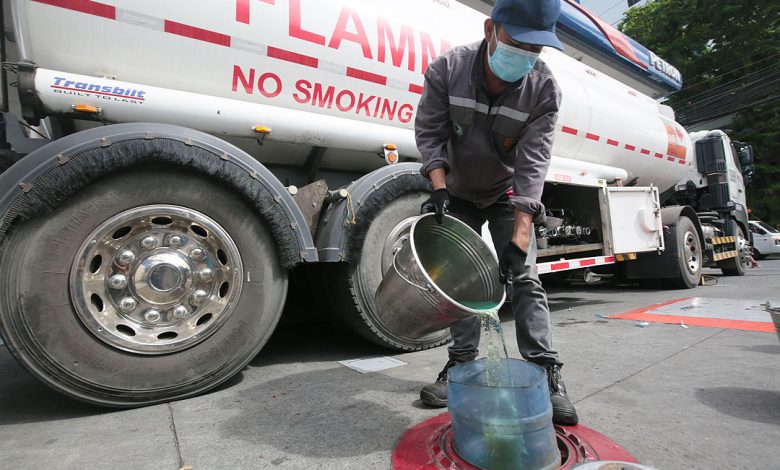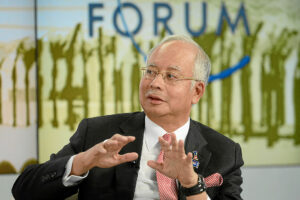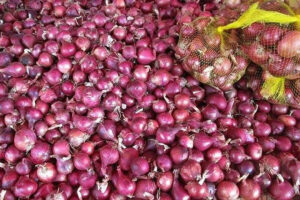Higher energy, commodity prices threaten PHL growth

A worker takes a sample of the petroleum product before refilling a gas station in Quezon City, March 28. — PHILIPPINE STAR/ MICHAEL VARCAS
THE PHILIPPINES is one of the Asia-Pacific countries that would be most affected by the surge in energy and commodity prices due to the Russia-Ukraine war, S&P Global Ratings said.
“Higher energy and commodity prices, exacerbated by the Russia-Ukraine conflict, are increasing regional inflation pressures. The hit would be most keenly felt by the largest net energy importers (relative to gross domestic product) of India, the Philippines, Korea, Taiwan, and Thailand,” S&P Global Ratings analysts Eunice Tan and Terry Chan said in a note.
S&P earlier this month cut its gross domestic product (GDP) growth estimate for the Philippines this year to 6.5%, as it expects a wider current account deficit and higher inflation.
Last week, the central bank raised its inflation forecast for 2022 to 4.3%. This is already above its 2-4% target range as it acknowledged the impact of the rising oil and commodity prices.
Meanwhile, a report by Nomura Global Markets Research analysts Rob Subbaraman and Si Ying Toh showed the Philippines was classified as among the commodity-dependent group of emerging markets that have “relatively sound fundamentals and will benefit once commodity prices decline.” Also included are China, South Korea, India, and Thailand.
“The Russia-Ukraine war has led to an extraordinary surge in commodity prices that is set to drive a wedge between emerging market losers (large net importers of commodities) and emerging market winners (large net importers of commodities),” Nomura said.
“Most emerging countries are large net importers of energy and some — South Korea, the Czech Republic, China, Romania, Egypt and the Philippines — are also sizable net importers of food, making them doubly exposed,” it added.
However, Nomura said the Philippines is among resilient emerging markets due to its limited trade exposure to Russia and Ukraine.
However, the analysts warned that emerging markets are more prone to the impact of higher commodity prices, as their consumer price index baskets have larger weights for food prices compared with their counterparts in developing economies. In this scenario, Nomura warned that more emerging economies may then experience-double digit inflation that is already seen in Turkey.
“Even in Asia, where inflation has been relatively low, prices are set to accelerate,” it said.
Nomura also noted that the impact of the war in Eastern Europe comes at a time when some emerging economies are still far from a full economic rebound from the pandemic. It noted that emerging markets that have the “weakest recoveries” include the Philippines, Peru, the Czech Republic, Thailand, Indonesia, and Romania.
”If they have weak fundamentals, high exposure to Russia and suffer from high commodity prices, then their economies can become more fragile (e.g. Czech Republic, Romania and the Philippines),” it said.
Nomura expects the Philippine economy to grow this year by 6.3%. — L.W.T.Noble




